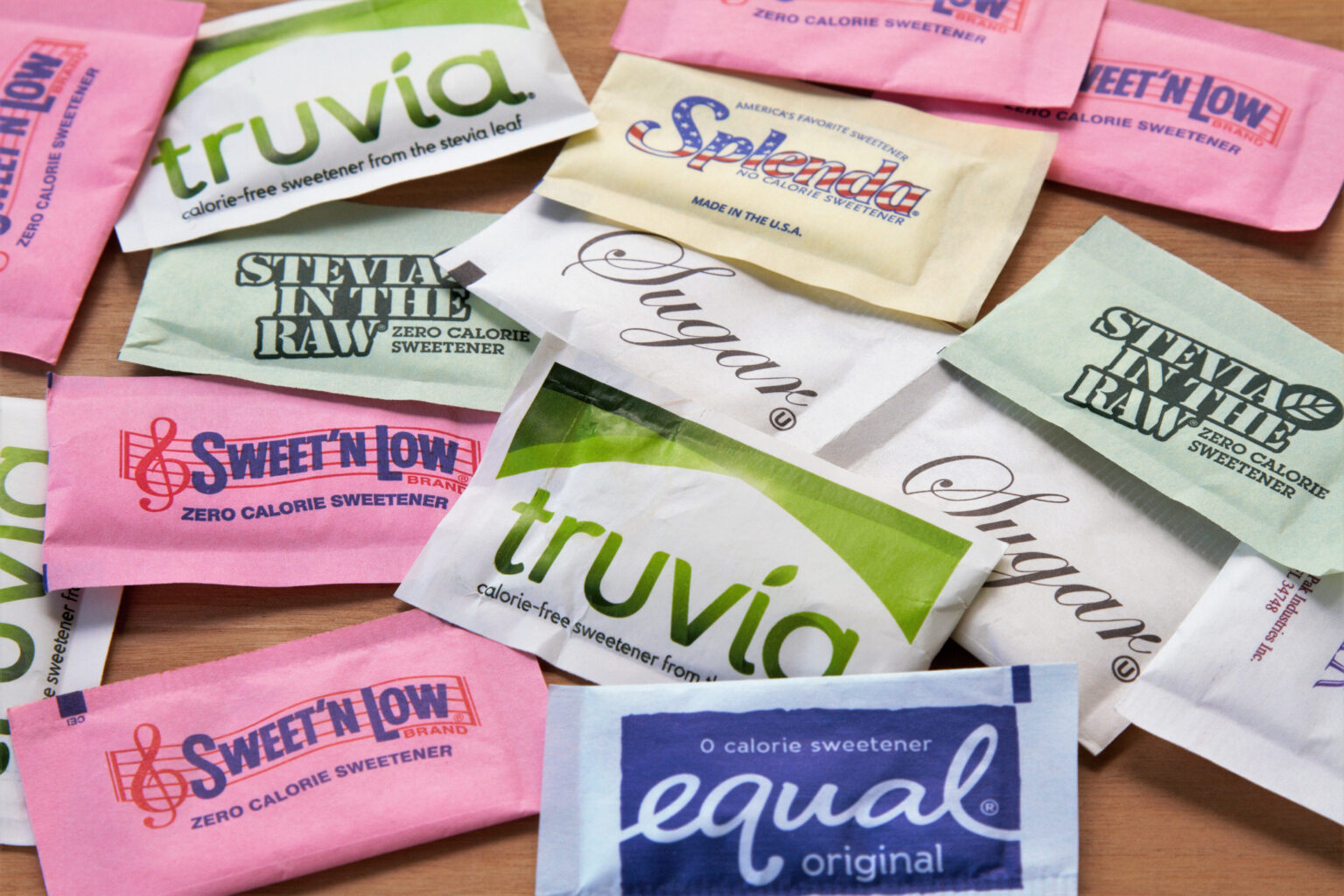Fran wants to know which artificial sweeteners are OK to consume. I have been getting asked this question a lot lately, and it’s no wonder – they seem to be everywhere. More and more products contain them, and new substances are being introduced into the marketplace. A lot of it comes down to preference and choice. I hope to shed some light on basically what kind of artificial sweeteners are out there and some facts to help you make the decision to consume or not to consume them.
Let’s start with the more common ones we know: Aspartame (Equal®), Sucralose (Splenda®), and Saccharin (Sweet’N Low®). All have been recognized as approved sweeteners by the Food and Drug Administration (FDA), but there is still controversy whether using them is safe or not.
Aspartame has been approved for more than 20 years by the FDA as a general purpose sweetener. We often know it as Equal®. It does provide some calories but since it is so sweet, you only need a small amount, so to most the calories are negligible.
Aspartame is probably one of the most talked about sweeteners and controversial because most of the studies done (the ones touting its safety/recommending) on it were funded by companies supporting aspartame, so some people question whether the studies are misleading and biased. In addition, some studies do show that use of it has been linked to headaches, depression, cancer and increased hunger – but more research to determine efficacy needs to be done.
Sucralose is the one we think about as being the closest to sugar; it provides no calories and is not fully absorbed in the body. The tricky part here is that Splenda® isn’t 100 percent natural sucrose and contains additional bulking agents (e.g. maltodextrin), which have carbohydrates. The amount can be negligible but if someone is using it in baking for instance, it will contain calories and carbohydrates.
Saccharin has been used as a sweetener for many years – actually one of the most researched. Much of the testing has been done on rats and its relationship to cancer, expanding into human studies supporting there were no carcinogenic effects (the dose given to the rats was hundreds times higher than a human would consume). Still, there’s a lot of controversy over whether evidence of carcinogens in rats show that humans should try to limit overall consumption.
So should you consume or not? My thoughts are that if you can go natural, go for it. Limit your use if possible and look for products that have natural ingredients.
